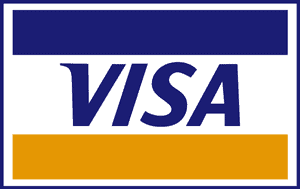This is the latest installment in The Official Merchant Services Blog’s Knowledge Base effort. Well we want to make the payment processing industry’s terms and buzzwords clear. We want to remove any and all confusion merchants might have about how the industry works. Host Merchant Services promises: the company delivers personal service and clarity. So we’re going to take some time to explain how everything works. This ongoing series is where we define industry related terms and slowly build up a knowledge base and as we get more and more of these completed, we’ll collect them in our resource archive for quick and easy access. Today’s term is Transaction Integrity Fee.
Transaction Integrity Fee
 Visa introduced the Transaction Integrity Fee (TIF) in April, 2012 — the same time it introduced the Fixed Acquirer Network Fee (FANF). It is a new $0.10 fee that will apply to U.S. domestic regulated and non-regulated purchase transactions made with a Visa Debit card or Visa Prepaid card that fail or do not request Custom Payment Service (CPS) qualification. The CPS rates are Visa’s best rates and apply to both regulated and non-regulated transactions.
Visa introduced the Transaction Integrity Fee (TIF) in April, 2012 — the same time it introduced the Fixed Acquirer Network Fee (FANF). It is a new $0.10 fee that will apply to U.S. domestic regulated and non-regulated purchase transactions made with a Visa Debit card or Visa Prepaid card that fail or do not request Custom Payment Service (CPS) qualification. The CPS rates are Visa’s best rates and apply to both regulated and non-regulated transactions.
This fee can be viewed as a definite response from Visa to offset the losses they incur from Durbin Amendment’s interchange rate cap and finance reform/regulatory changes. As a result, The TIF is charged in addition to the applicable interchange fee and discount rate — meaning that regulated debit transactions still receive the regulated interchange rate (0.05% + $0.22), but are also subject to the TIF if they fail to qualify for a CPS program. For example, a transaction that qualifies for Standard Debit – Exempt or Regulated – will be assessed an extra $0.10 for the TIF.
Tips to Avoid the TIF
- Always settle your transactions within one day of authorization. This means always batch out your terminal, POS, or payment gateway at the end of every day’s business.
- Always read and transmit complete magnetic stripe data.
- Always authorize and settle for the same amount. If a customer changes an order before that day’s settlement, always void the original order and start over. Do not adjust the amount of the existing order.
In addition, Card Not Present transactions need to do these things to avoid TIF:
- Always obtain an exact AVS (Address Verification System) match on Card Not Present, Key-Entered, and E-Commerce transactions. An exact match is the street address number and zip code matching the billing street adress number and zip code on file with the issuing bank. If you are an E-Commerce merchant that allows sales with partial or no AVS match (to increase conversions), you may want to consider requiring an exact match, depending on average ticket size, the effect this has on conversion ratios, and other steps you might take to screen for fraud (like 3D-Secure, etc.).
- Ensure that your processor is transmitting the correct MOTO/ECI Indicators with your transactions. If you have changed your business model or added an e-commerce capability to an existing merchant ID confirm with your processor that the correct MCC and Indicators are attached to your transactions, and open additional or new merchant IDs if necessary.
